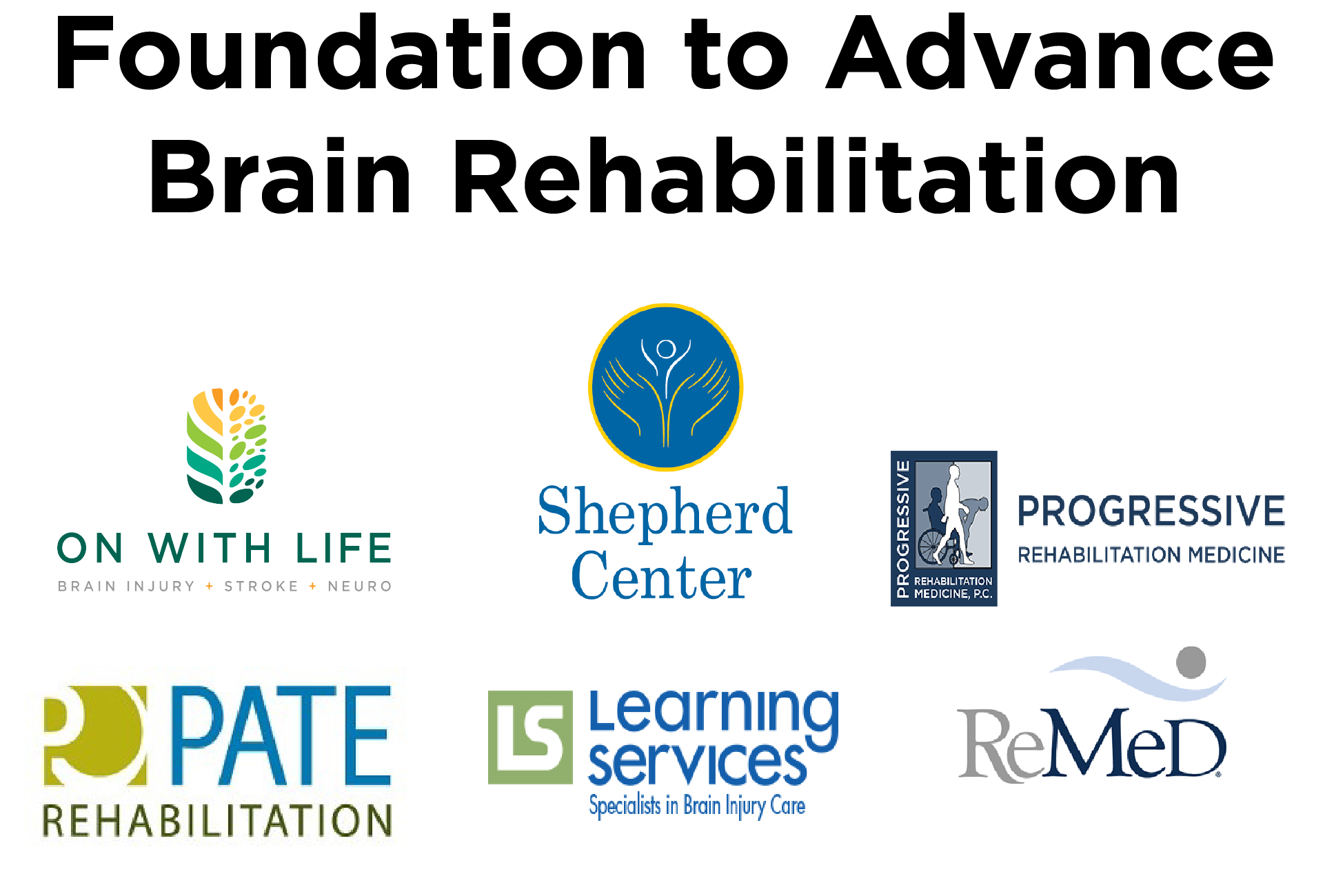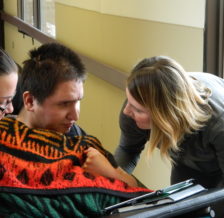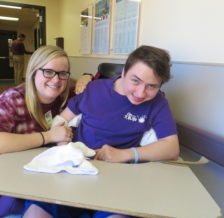News
- Homepage
- >
- Education + Research
- >
- News
On With Life Partners with National Brain Injury Providers to Demonstrate the Value of Post-Acute Rehabilitation

On With Life has partnered with a select group of leading brain injury rehabilitation organizations from across the United States for a unique, one-of-a-kind alliance to improve patient outcomes in the rehabilitation field. On With Life joins five other organizations – Learning Services, Pate Rehabilitation, Progressive Rehabilitation, ReMed and Shepherd Center – to create the Foundation to Advance Brain Rehabilitation (FABR). The partnership allows the six organizations to aggregate outcome data to launch the only known national collaborative database in the United States that captures the impact of brain injury rehabilitation following the acute care setting.
“On With Life has always been a leader in brain injury rehabilitation, and we’re are thrilled to be partnering with these elite organizations to advance the field of rehabilitation together,” said Jean Shelton, On With Life CEO, who will chair the new committee.
The six FABR organizations represent 12 U.S. states and comprehensively offer a continuum of post-acute neuro-rehabilitation and neuro-behavioral programs in various settings, including residential, inpatient, outpatient, day treatment, and home and community-based. FABR will utilize outcome data to research and demonstrate the value of post-acute brain injury rehabilitation within this continuum of services.
“The potential impact of improving quality of life, return to work, and community participation of post-inpatient brain injury rehabilitation has increased dramatically in the past 20 years as inpatient rehabilitation stays following acquired brain injury (ABI) have decreased from months to weeks,” says James Malec, Ph.D., chief scientific officer for FABR and senior research professor emeritus at the Indiana University School of Medicine. “The power of the FABR data and research is that it will help providers and the entire brain injury field understand best practices and demonstrate the effectiveness of post-acute rehabilitation.”
Beginning in June 2020, outcome data from each FABR organization will be submitted to OutcomeInfo, a national, web-based database system developed through the National Institutes of Health (NIH). The initial data set will include de-identified patient demographic information and Mayo-Portland Adaptability Inventory (MPAI-4) scores throughout the rehabilitation continuum.
In addition to identifying best practices in post-acute rehabilitation, a key goal in forming the FABR alliance is to justify care interventions and demonstrate a clear and measurable benefit for those interventions. This information can then be used by providers, patients and caregivers to advocate for appropriate access, benefit coverage, intensity and duration of rehabilitation services to achieve desired outcomes.
“Demonstrating the effectiveness and efficiency of specialized rehabilitation can be especially challenging for post-acute care providers,” says Michael Choo, M.D., chief medical officer for Paradigm and FABR’s medical consultative partner. “Rehabilitation benefits typically occur incrementally over the care continuum and the industry would benefit greatly by collaborating together to validate evidence-based minimum effective dose recommendations for many existing care interventions. The impact FABR can have in this area has life-changing potential for patients as well as providing guidance to both payers and policymakers.”
The six founding FABR organizations will remain as independent organizations but have formed a single non-profit entity to protect the confidentiality, aggregation and use of patient data. Founding members plan to add additional FABR organizations after the initial formative year.









